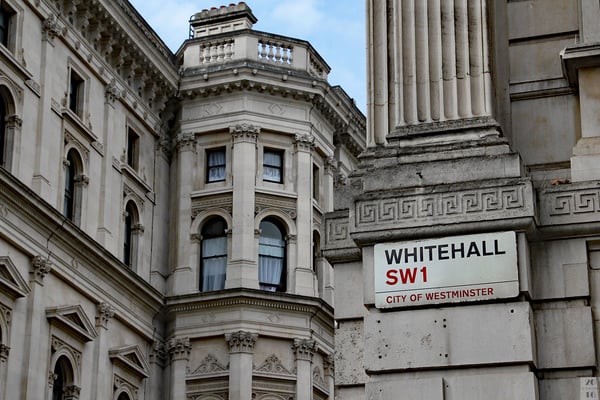Council is developing green energy plan using pioneering digital tool
Winchester City Council has saved up to £50,000 in creating the first ever digital Local Area Energy Plan (LAEP) by developing it using the Local Energy Net Zero Accelerator (LENZA) tool. The tool is a geospatial planning platform which provides data and modelling designed to inform greener decision making.
The Councils' plan, which will be a fully costed roadmap to decarbonisation created alongside a range of local stakeholders. It will be completed in early 2026. The plan will assess the value of low carbon heating methods and insulation for reducing fossil fuel reliance and and identify locations for new technologies like electric charging points.
By using LENZA the Council was provided with free access to key data, saving them 54% of the cost of traditional consultancy methods. Additionally, LENZA's modelling allowed to Council to engage in more interactive planning, updating digital plans during development.
LENZA was developed by Scottish and Southern Electricity Networks (SSEN) as a version of Advanced Infrastructure Technology's spatial energy planning platform.
We spoke to Alex Eburne, Sustainability Manager at Winchester City Council, about the development of the LAEP, using LENZA. 
How did you integrate the information that the LENZA provides in developing the LAEP?
"LENZA aggregates and visualises a wide range of datasets—such as energy consumption, EPC ratings, and network capacity – which we have used to understand the current energy system in the Winchester district," says Eburne. "We are using the Data Stories features in LENZA to share insights from the datasets with local stakeholders across the Winchester district using narratives and visualisations," he adds.
Eburne identified that the Council are using the Portfolios tool within LENZA to find "the best locations to install low carbon technologies such as heat pumps and solar PV." He explains: "portfolios enable you to collate a list of buildings that meet specific criteria by setting complex filters. This criteria is easily customisable, and is created by selecting one or more datasets, then applying a range of filters that meet our needs."
What were the benefits of using LENZA compared to previous systems?
"The traditional approach to developing local area energy plans (LAEP) often relies on expensive consultancy services with costs that can be prohibitive to some local authorities," says Eburne.
"Bespoke tools and proprietary methods used by consultants to develop LAEPs can make it more difficult for local authorities to update their plans over time once contracts are completed." Eburne says that "this is especially problematic if the models and data are held by third party consultants who may charge to provide ongoing support." He highlights, "at present, variations in datasets, assumptions and methodologies across consultants make it difficult to compare and aggregate plans."
"The value of LENZA is that it places the datasets and online tools required to develop LAEPs in the hands of local authorities free of charge," adds Eburne. "This offers a more cost-effective way to develop LAEPs with estimated cost savings of up to £50,000 or 54% compared to traditional consultancy methods. It also supports more iterative planning as the council will be able to update the plan over time within LENZA as circumstances change."
He says "the digital tools and functionalities within LENZA will enable the council to develop the UK’s first digital LAEP as opposed to a static report format. The project will aim to develop a replicable process for other local authorities to follow to deliver LAEP at low cost and build their internal energy planning capabilities."
What other use cases do you envision for LENZA going forwards?
"The digital LAEP will be developed and updated within LENZA and be used to inform our delivery partner Scottish and Southern Electricity Networks (SSEN) network planning and investment strategies."
It will also "feed into the development of other regional and national strategic energy plans including the emerging Regional Energy Strategic Plans (RESP). LENZA will be used to implement and deliver the LAEP once this has been created by enabling the council and other partners to develop business cases for a prospectus of net zero projects."
What are the key features of Winchester’s LAEP ?
In general, "the Winchester LAEP will help to identify the most appropriate interventions across the local energy system that will enable the district to reach net zero in the most cost-effective way," says Eburne.
"It will address electricity, heat and gas networks, the future potential for hydrogen, the built environment (industrial, domestic and commercial) its fabric and systems, flexibility, energy generation and storage, and providing electricity to electric vehicles and charging infrastructure."
"It will aim to identify a pipeline of projects that can be implemented in the near-term to progress towards net zero," alongside "the optimal combination of network interventions to guide the gas and electricity network operators’ network planning and investment strategies."
Which elements of this new plan will have the greatest impact on residents, which are you most excited about?
Eburne says that the Winchester LAEP "will deliver a wide range of benefits to residents and will be developed and implemented with community needs at the forefront." It will "provide an evidence-based plan that sets out where key low carbon technologies such as heat pumps, solar PV, and insulation, need to be deployed across the Winchester district."
Additionally, "the LAEP will be used to attract investment into the district to support the delivery of these technologies and ultimately help to lower energy bills and improve home comfort for residents."
"Through the development of the LAEP, the council will support communities to build their knowledge and understanding of the local energy system and the solutions required within their neighbourhoods as part of the energy transition. We hope to empower communities to respond to the net zero challenge and build their capacity to participate in delivering the change required," highlights Eburne.
Demonstrating the value of digital tools for supporting the net zero transition, this project will provide a blueprint for the development of further regional energy strategies in the future.

By Lucy Baldwin
Lucy is a journalist at Government Transformation Magazine. She completed an interdisciplinary degree in English, Philosophy and Politics at the University of Durham and has experience across newspaper, radio and television.Also Read
- NAO chief urges Whitehall to pair AI with cost transparency to unlock government productivity
- Beyond the consultancy cycle: rethinking how the public sector builds capability
- Transforming public services: why people, partnerships, and tackling technical debt matter most
- ‘Roadmap for Modern Digital Government’ sets out tech-led transformation to 2030




